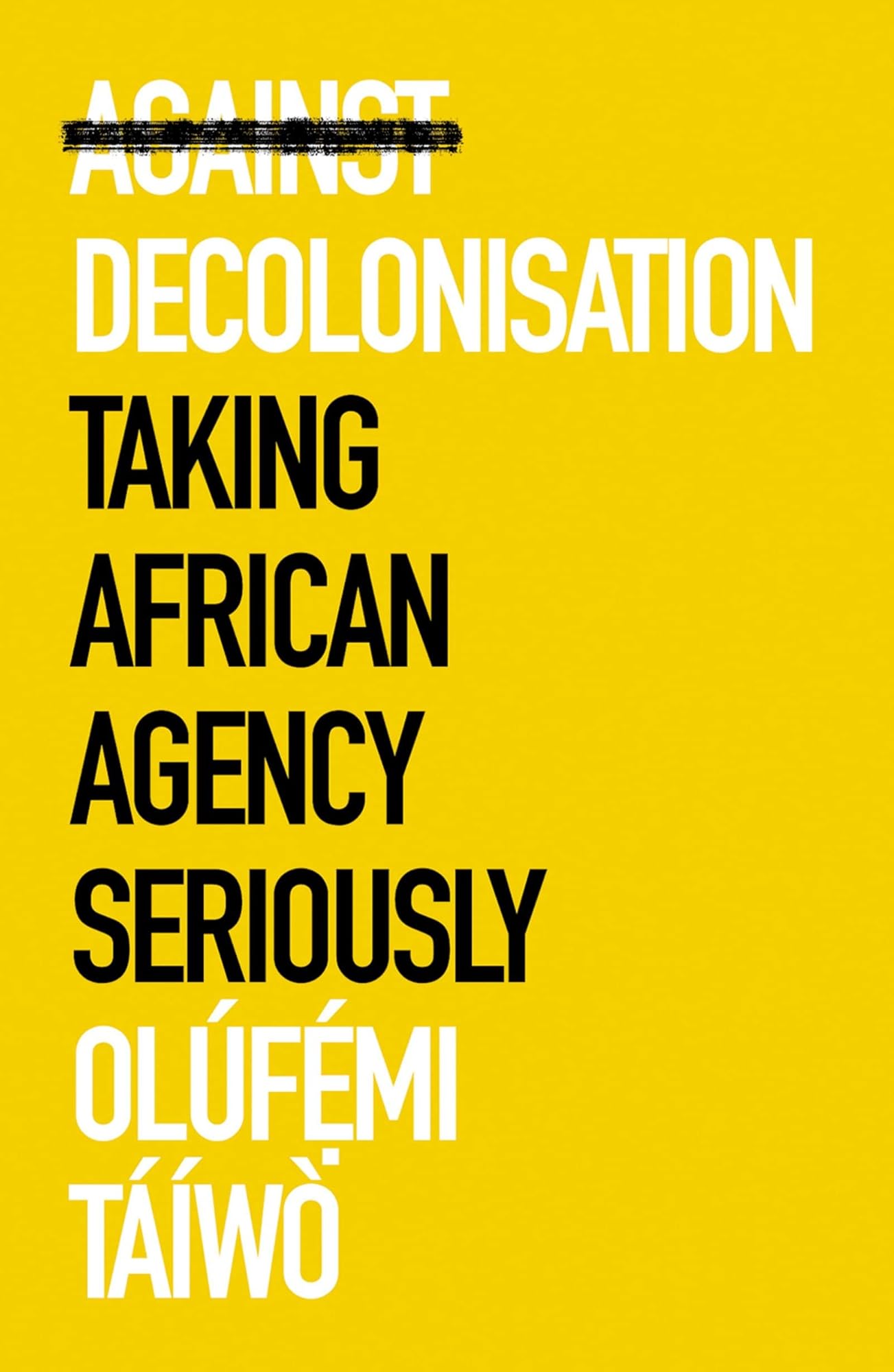
Against Decolonization

from Bénin in 1991 to Eswatini, Tunisia and Sudan in 2021, their demand has been for human dignity; for the state, run by people from within their own ranks, to serve and respect them; and for individuals, in their capacity as humans and citizens, to be the authors of their own scripts, and for the integrity of their person to be held sacrosanct by
... See moreOlúfemi Táíwò • Against Decolonization
Whatever problems there may currently be in Africa’s political and economic spheres, since the day after independence, they are no longer colonial problems. If, indeed, my dis-tinction between the two senses of decolonisation holds, it turns out there is a paradox in the discourse that has been hidden from analysts until now. If colonialism, as I
... See moreOlúfemi Táíwò • Against Decolonization
Again, if anybody holds France responsible for her ex-colonies’ decision to tie their currency to the French Central Bank and regards that as evidence that colonisation never ended in those countries, I beg to differ. What were Africans leaders who signed on to such deals thinking when they did? Yes, they were subjected to threats. But we must
... See moreOlúfemi Táíwò • Against Decolonization
In economics, the direction of the country’s economy must be steered by its citizens, with a government that they have freely chosen at its helm.
Olúfemi Táíwò • Against Decolonization
That is, the colonies were not permitted any choice in trading partners or the source of the manufactured goods they needed. We confront, yet again, how the issue of autonomy, of self-governance—the central credo of the modern age—was the differentia specifica when it came to defining the economic organisation of the colonies, with the interests of
... See moreOlúfemi Táíwò • Against Decolonization
By its very nature, no language can be owned by any person or any people.26 Anyone who is willing and able to acquire a language becomes a part-owner of that language. Even when enslaved persons were forbidden from learning to read or write, their common capacity to acquire language by ear—which the slave-owner could not take away from them—allowed
... See moreOlúfemi Táíwò • Against Decolonization
The ‘owners’ of ‘chattels’ were free to believe their own lies. But the so-called ‘chattel’ always shocked their ‘owners’ by talking back and doing so in the same syntax as their supposed owners.
Olúfemi Táíwò • Against Decolonization
matter. I argue in this work that much of the discourse on decolonising treats the colonised as if they are mute presences in the drama that other people are writing, and acts as if only two viewpoints matter: that of the oppressors and that of the analysts who think they know best what works. What is often ignored or dismissed is the work of the
... See moreOlúfemi Táíwò • Against Decolonization
Because the ideas and processes involved in decolonisation2 (deciding which philosophical and ideological frameworks to embrace) do not always have the same origins, nor the same solutions, as the challenge posed by decolonisation1 (achieving ‘real independence’), we must exercise caution when talking about both in a single breath.